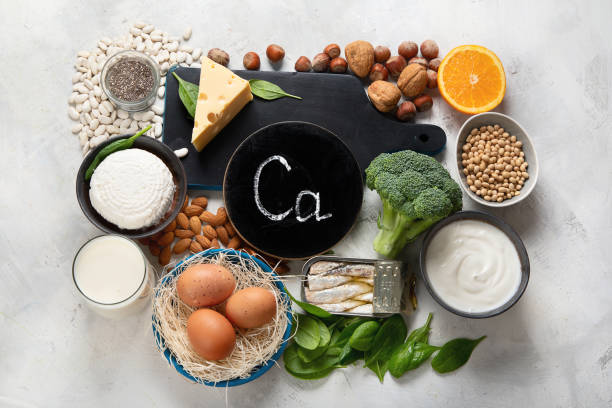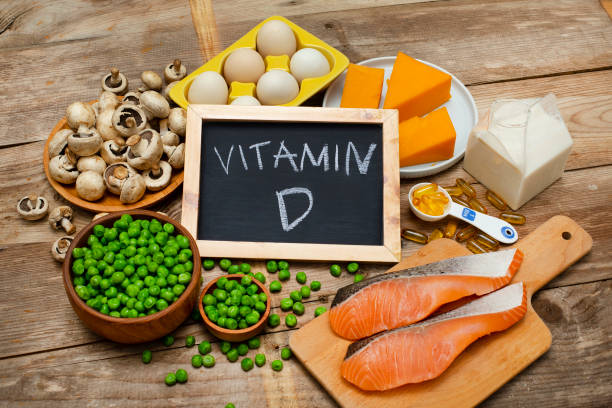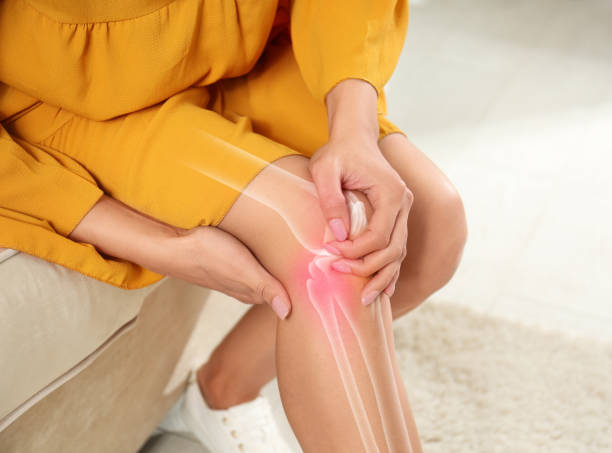Table of Contents
Introduction: Why Women’s Bone Health is Essential
Women’s bone health is an often overlooked aspect of overall wellness, but it is crucial to maintaining independence and quality of life as they age. Bone mass naturally decreases with age, especially in postmenopausal women, which increases the risk of fractures and conditions like osteoporosis. However, there are many ways to support and strengthen bones to ensure long-term health. In this article, we will explore 10 proven ways to support women’s bone health through diet, exercise, and lifestyle changes. These simple yet powerful steps can make a significant difference in the health of your bones.
Why Women’s Bone Health Matters
Bone health is often overlooked until a problem arises, but it’s essential to recognize the importance of maintaining strong bones. Women are at a higher risk of developing osteoporosis than men, especially after menopause, when bone density naturally decreases. Without proper care, weakened bones can lead to fractures, loss of mobility, and a diminished quality of life. Fortunately, with the right lifestyle choices, women can significantly reduce the risk of bone-related conditions and maintain bone health well into their later years.
Proven Ways to Support Women’s Bone Health
1. Get Enough Calcium in Your Diet
One of the most vital nutrients for women’s bone health is calcium. Calcium plays a critical role in building and maintaining strong bones. If you don’t consume enough calcium, your body will start to withdraw it from your bones, weakening them over time. Dairy products like milk, yogurt, and cheese are excellent sources of calcium. For those who prefer non-dairy options, foods like fortified plant milk, leafy greens, tofu, and almonds can help boost your calcium intake.

2. Vitamin D is Key for Bone Health
Vitamin D is essential for calcium absorption in the body. Without it, calcium cannot be effectively absorbed, and bone strength will be compromised. Spending time outdoors in the sunlight is one of the best ways to get vitamin D. However, you can also find it in foods such as fatty fish (like salmon and mackerel), egg yolks, and fortified foods like orange juice and cereal. If getting enough vitamin D from food and sunlight is difficult, supplements are also a good option.

3. Engage in Weight-Bearing Exercises
Weight-bearing exercises are some of the best activities for strengthening bones. These exercises help stimulate bone growth and can increase bone density. Activities such as walking, running, dancing, and resistance training all count as weight-bearing exercises. Not only do these exercises help in improving bone health, but they also enhance overall strength, balance, and posture. Aim for at least 30 minutes of weight-bearing exercise most days of the week to support your bones effectively.
4. Incorporate Strength Training into Your Routine
Strength training is another excellent way to support women’s bone health. Lifting weights or using resistance bands strengthens bones by challenging them to withstand weight. This type of exercise helps increase bone density, particularly in the spine, hips, and wrists, areas vulnerable to osteoporosis. Focus on working different muscle groups at least twice a week for maximum benefits. Always start with light weights and gradually increase the resistance to avoid injury.
5. Maintain a Healthy Weight
Being underweight or overweight can have negative effects on bone health. Low body weight increases the risk of bone loss and fractures, while excess weight can put strain on bones and joints. Strive for a balanced weight that supports overall health. Achieving and maintaining a healthy weight through a combination of a balanced diet and regular physical activity will improve bone strength and help protect against bone-related issues.
6. Avoid Smoking and Excessive Alcohol Consumption
Both smoking and excessive alcohol consumption are detrimental to women’s bone health. Smoking interferes with calcium absorption, and excessive alcohol reduces bone-forming cells. To protect your bones, quit smoking and limit alcohol intake. If you do drink, keep it to a moderate level—generally no more than one drink per day for women.

7. Get Enough Magnesium
Magnesium is a key mineral for bone health. It helps regulate calcium levels in the body and plays a role in bone formation. Women who lack magnesium may be at a higher risk for bone fractures and osteoporosis. Magnesium-rich foods include nuts, seeds, leafy green vegetables, and whole grains. Including these foods in your diet will not only support bone health but also offer numerous other health benefits.
8. Ensure Adequate Protein Intake
Protein is another important nutrient for supporting women’s bone health. It helps build and maintain muscle mass, which in turn supports the bones. If your protein intake is too low, you may lose bone density over time. To support your bones, incorporate lean sources of protein like chicken, fish, eggs, and plant-based options such as beans, lentils, and tofu into your diet.
9. Limit Caffeine and Salt
Consuming too much caffeine or salt can negatively impact your bone health. High levels of caffeine can cause calcium loss through urine, while excessive salt intake can increase calcium excretion from the body. To support bone health, limit your consumption of caffeinated drinks like coffee, tea, and soda, and be mindful of your salt intake. Opt for whole, unprocessed foods and limit processed foods, which tend to be high in salt.
10. Regular Bone Density Tests
Finally, regular bone density tests are an important part of maintaining women’s bone health, especially as you age. These tests help identify potential bone issues like osteopenia or osteoporosis before they become more serious. Women over the age of 65, or younger women at higher risk for bone loss, should talk to their doctor about having bone density tests. Early detection and intervention can prevent fractures and other bone-related complications.
Conclusion: Take Charge of Your Bone Health
Women’s bone health is essential for leading an active and independent life. By following these 10 proven ways to support women’s bone health, you can take proactive steps to strengthen your bones and reduce the risk of osteoporosis and fractures. A healthy diet, regular exercise, and a few lifestyle changes are all it takes to ensure strong bones for years to come. Remember to consult with your healthcare provider before making any major changes to your routine, especially if you have any pre-existing conditions.
Frequently Asked Questions
How can I improve my women’s bone health naturally?
Improving women’s bone health naturally involves consuming a calcium-rich diet, getting enough vitamin D, engaging in weight-bearing exercises, and maintaining a healthy weight. Lifestyle changes like quitting smoking and reducing alcohol intake also help.
What are the best exercises to support women’s bone health?
Weight-bearing exercises such as walking, running, and resistance training are the best for women’s bone health. Strength training can also help increase bone density, particularly in areas like the spine and hips.
How much calcium do women need for healthy bones?
Women should aim for at least 1,000 mg of calcium per day in their 20s and 30s. After the age of 50, this requirement increases to 1,200 mg per day to support bone health and prevent bone loss.
How does smoking affect women’s bone health?
Smoking negatively affects bone health by interfering with calcium absorption and reducing bone density. It also decreases estrogen levels, which further weakens bones, especially in postmenopausal women.
Why is vitamin D important for women’s bone health?
Vitamin D is crucial for women’s bone health because it helps the body absorb calcium. Without adequate vitamin D, the body cannot properly utilize calcium, leading to weak bones and a higher risk of fractures.



